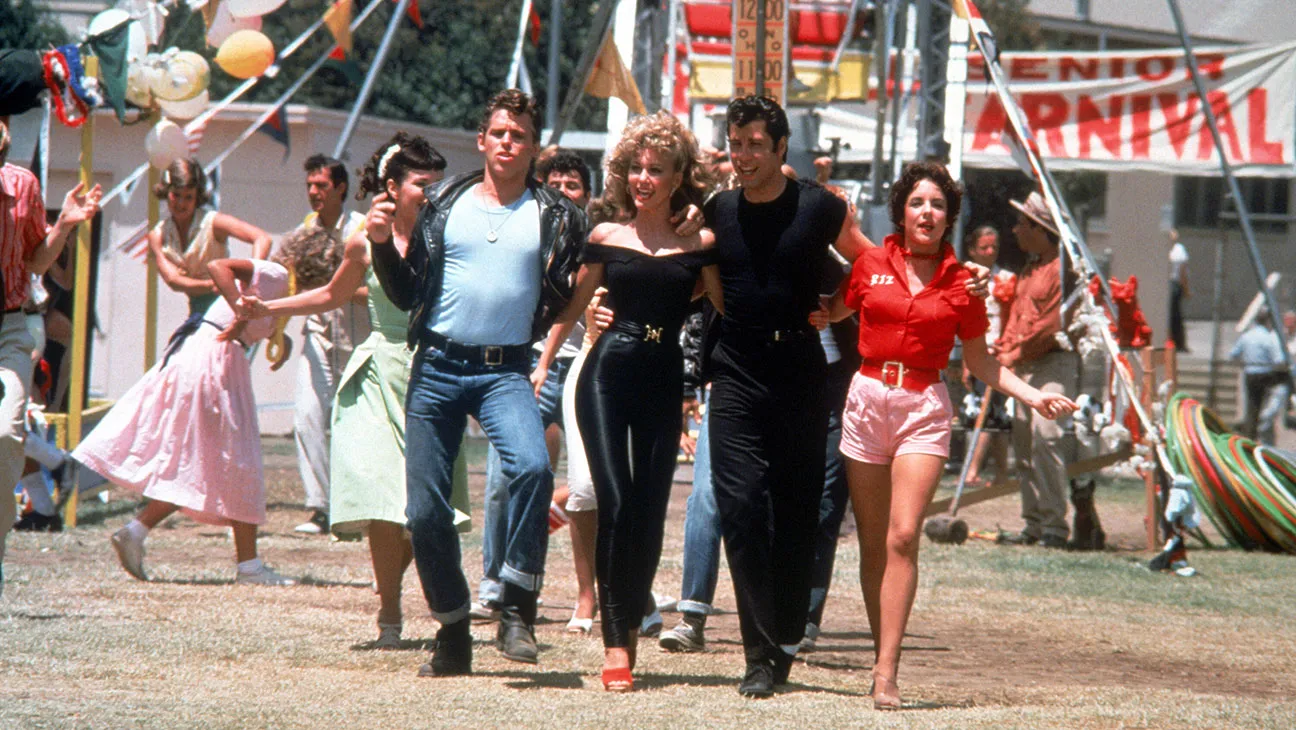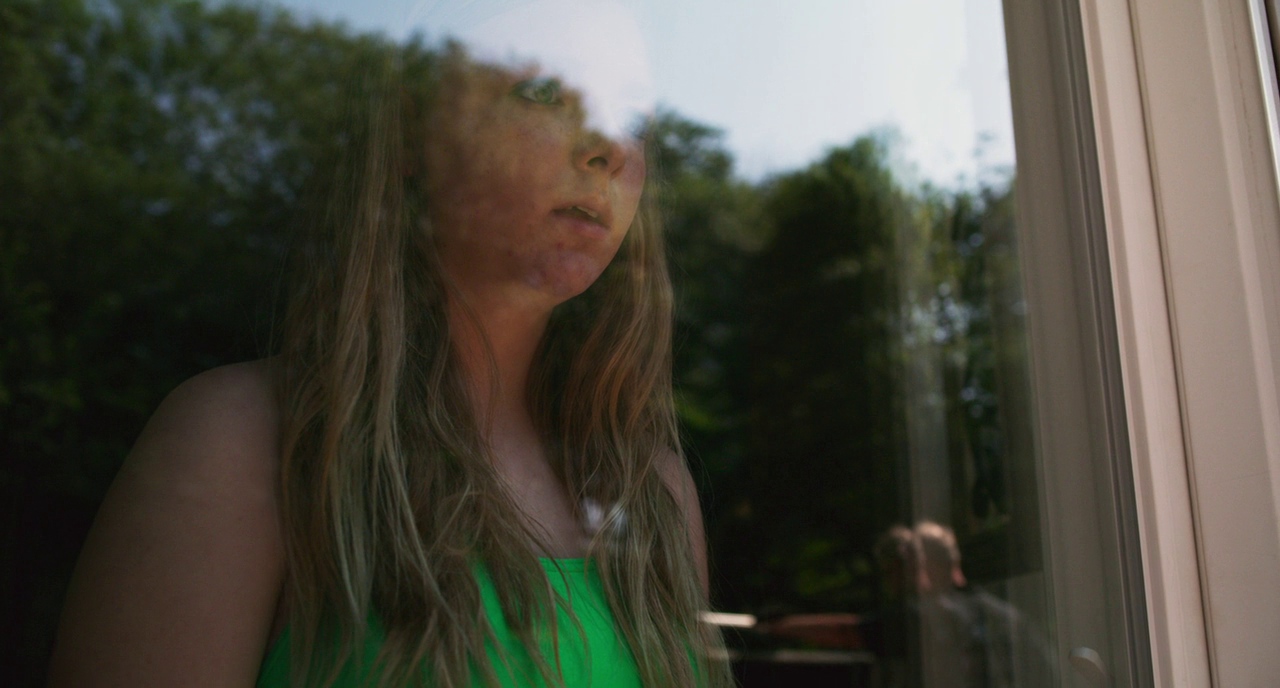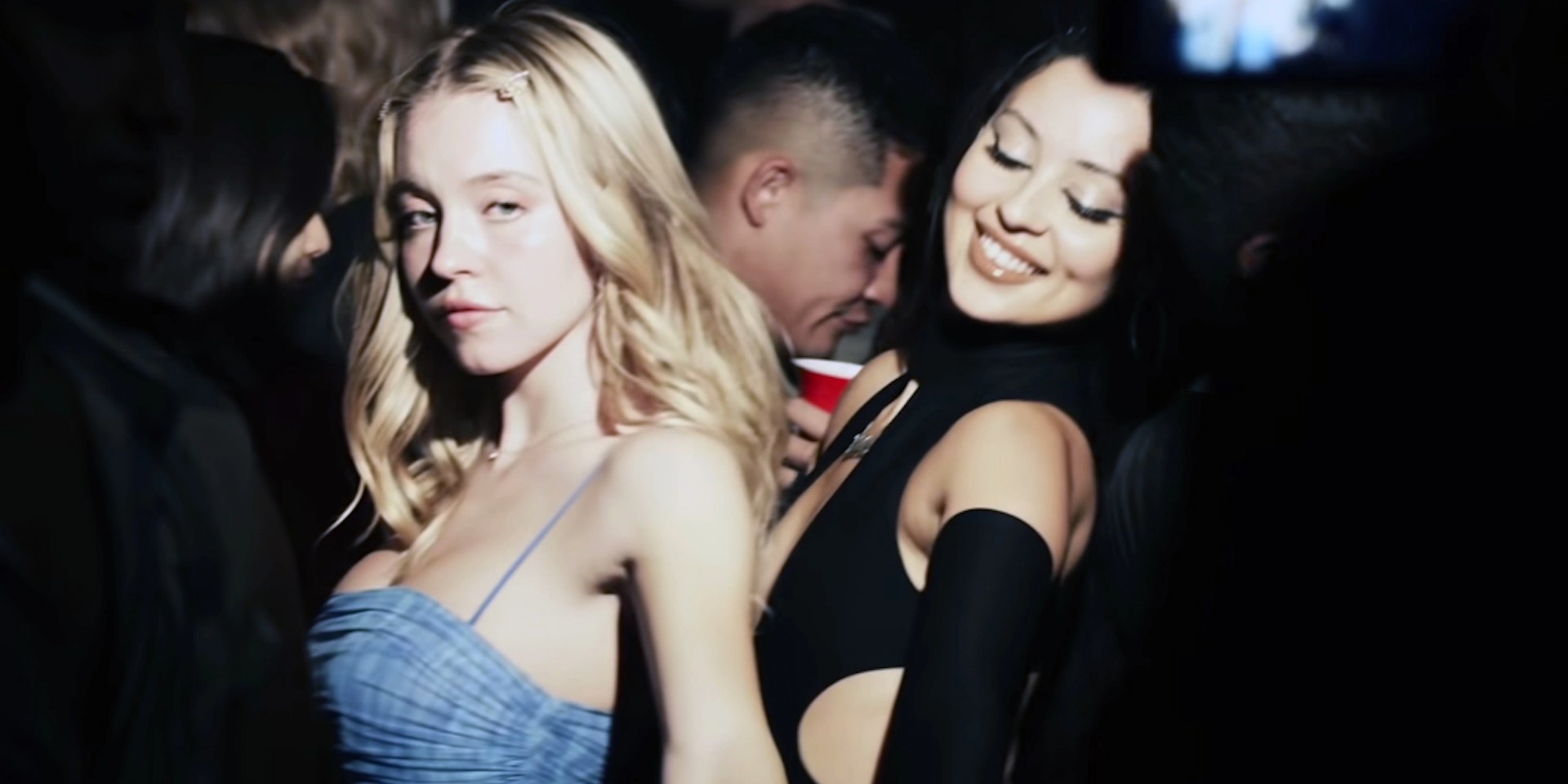My Problematic Fave: A juicy question with many answers: Catherine Breillat. Dollarama. Nina Simone's version of "I Loves You, Porgy" (it's not on Simone, she saves it from Gershwin, it's just the one I love). I would say Woody Allen's Husbands and Wives or Deconstructing Harry, but I think it's okay to enjoy those (so bleak and revealing, they are basically a confession), it's more problematic that I love Manhattan.
First Movie I went on a Date for: Sweet Home Alabama, a double date with my neighbourhood friend and two guys from another school we met hanging out (as teens do) after school hours at the playground. He thought I was crying during an emotional scene where Reese Witherspoon visits a grave in her hometown (A grandparent? Childhood dog?), but I was a cynical 14-year-old, and not then or now a Rom Com girl, and was trying to muffle my laughter.
My Movie/TV Character Style Icon: Julia Stiles in Hamlet, Kiera Knightley in Love, Actually, Satine in Moulin Rouge, Maggie Cheung and Nathalie Richard in Irma Vep.
The First Sex Scene I Ever Saw: I can't remember for sure, but probably Titanic.
… and it made me feel: Confused: it gave me absolutely no information on what sex actually is, only that there were certain signals I would one day understand (like the men who laugh knowingly when they see the fogged up windows). Also afraid: it seemed sex would always leave some trace, and you could not hide it from anyone. Also romantic: sex was fun and actually fine, no one was hurt by it or punished for it (although it did happen right before they hit the iceberg, but this was not a coincidence that my young mind internalized.)
Best Needle Drop: Most of the songs in Rushmore (but maybe "Oo La La" by The Faces the most). I didn't even know what those songs were when I watched it at 15, but I knew that they were perfect.
I Wish this Fictional Meal Existed IRL: This meal does exist, but I have never seen the timpano from Big Night out in the wild, and although it seems like something that is better in theory than in execution, I'm not sure I'll feel fully satisfied if I never try one.
Untouchable Classic that I hate: How do I even pick! Citizen Kane does very little for me (except Welles, who I find quite hot), 2001: A Space Odyssey is glacial and so British (I do think the scene approaching the monolith on the moon is fab), Bresson leaves me dry (a symptom, perhaps, of him casting actors because they're hot), I find Parasite shallow, I only like the scenes in Stalker before and after they go to the Zone, and I can't get past Jeanne Dielman's melodramatic ending (which became an irritating staple of art house film).
Celebrity I had on my wall as a teen
Frank Black Francis and Karen O.
My film/TV OTP is: I can't think of a time when I felt the ending of a film or show should have been different, I like when characters come together, I like when they fall apart.
The Reality TV Show I Would Win: I think it's obvious that my true place is not as a competitor, but as a judge.
When I was seven, I watched High School Musical (2006) and thought: “Wow, high school looks awesome.” Now I’m 13, and I’ve realized that the people I was watching weren’t high schoolers. They were like 25. And it shows.
There’s something hilariously surreal about being an actual teenager and watching adults try to play one. I’m not talking about 18-year-olds playing 17-year-olds—I mean full-grown tax-paying, wrinkle-cream-using adults in letterman jackets. There’s a specific uncanny energy to it, like watching a golden retriever try to pass as a hamster. Technically possible, but you feel weird for even entertaining the idea.
Take Riverdale, the high school show that feels like it was written by someone who skimmed a teen’s texts once in 2012. Everyone is impossibly hot, deeply traumatized, somehow juggling cheerleading with solving serial murders and surviving seven love triangles and three kidnappings per semester. KJ Apa (Archie) was 20 when the show began. Camila Mendes (Veronica) was 23. At that age, you’re supposed to be figuring out how to do laundry properly, not investigating your teacher’s mafia connections.
And don’t get me started on Grease (1978). That entire movie looks like a PTA meeting cosplaying as the Senior Class. Olivia Newton-John was 29. Stockard Channing was 33. You know how I know? Because I’ve seen high school boys’ actual faces. They’re not shaving twice a day and rocking distressed leather jackets like they’ve been in a gang.

When you're 13 like me, you start to realize that all those teen stories are often just adult fantasies in a school-shaped costume. The girls are fully contoured, the boys have eight-packs, and the drama is Shakespearean. Meanwhile, my real-life teenhood consists of oily foreheads, awkward silences, and desperately trying to finish math homework without crying. There’s less kissing in the rain, more online rage.
Even when shows try to get real, they overshoot. Euphoria, for example, is a brilliant show—the visuals are stunning, the emotions feel raw, and the acting is just incredible—but watching it as a teenager is like walking into a nightclub wearing Crocs. It’s jarring. Zendaya is a goddess, but the way Rue narrates high school like a noir thriller makes me feel like I’m doing adolescence wrong. Where’s my spiral into moral collapse? Where’s my glitter eye makeup budget? Last week, my biggest crisis was forgetting my English homework.
I get it—casting older actors makes sense. Labour laws, long shooting hours, “maturity” or whatever. But here’s the problem: when you put a 25-year-old in a high school desk, you're also slipping in adult expectations. Suddenly, teen girls on screen are expected to look like runway models, flirt like rom-com queens, and carry trauma like prestige drama protagonists. It’s exhausting. And confusing.
I’ve had friends who felt ugly because they didn’t look like Maddie from Euphoria. But Maddie is played by Alexa Demie, who is so mysterious that no one even knows her real age. You can’t compete with that. You shouldn’t have to.
That’s why I love it when we get actual teens playing teens. Eighth Grade (2018) was almost too real—Elsie Fisher’s character made me cringe so hard I had to pause the movie every five minutes to recover. But it was honest. No one had flawless skin or plotlines involving international crime rings. She just wanted to be liked. That’s the real teen horror story.

And Never Have I Ever comes close too. Maitreyi Ramakrishnan is a real teenager (or at least close enough), and she gets to be messy, mean, weird, and lovable. She makes mistakes that aren’t catastrophic. She wants to be cool but fails, gloriously. It’s not filtered through adult nostalgia—it's lived-in.
Maybe that’s what bothers me the most. A lot of teen media isn’t really for teens. It’s for adults looking back at their youth like it was some glittery, angst-drenched fairy tale. It’s wish fulfillment. In adult-teen shows, high school is the center of the universe, your crush is your destiny, and every hallway confrontation is Moulin Rouge!, minus the tuberculosis, plus some hair gel. In real life, sometimes you just eat lunch alone because your friend is absent and the canteen ran out of samosas, so you pick at a sad three-day-old sandwich.
I’m not saying teens don’t have big feelings. We do. I’m literally writing a 1,000-word rant about it. But I’d like to see those feelings portrayed without a 30-year-old method actor sighing deeply into a locker. Give me acne. Give me braces. Give me someone tripping over their own shoelaces on the way to confess their crush. Give me the cringey, funny, awkward truth.
I know that one day I’ll be 25, and maybe I’ll look back and romanticize this era too. Maybe I’ll forget what it was really like to be 13—how everything feels like too much and not enough all at once. Maybe I’ll write a show about a teenager who delivers profound monologues and looks like a Dior ad. But I hope not. I hope I remember how sacred this weird, liminal age is. Not glamorous. Not cinematic. Just... real.
So, dear Hollywood: if you must keep casting adults as teens, at least let them act like actual teens. Let them be cringey. Let them be unsure. Let them text “u up?” and then panic and unsend it. Stop giving them perfect comebacks and six-figure skincare routines. Let them sweat in PE. Let them wear the wrong shoes to a party. Let them be more than an Instagram-filtered idea of youth.
Because being a teenager is already confusing enough. We don’t need 30-year-olds telling us what it’s supposed to look like: We’re living it.
When I was seven, I watched High School Musical (2006) and thought: “Wow, high school looks awesome.” Now I’m 13, and I’ve realized that the people I was watching weren’t high schoolers. They were like 25. And it shows.
There’s something hilariously surreal about being an actual teenager and watching adults try to play one. I’m not talking about 18-year-olds playing 17-year-olds—I mean full-grown tax-paying, wrinkle-cream-using adults in letterman jackets. There’s a specific uncanny energy to it, like watching a golden retriever try to pass as a hamster. Technically possible, but you feel weird for even entertaining the idea.
Take Riverdale, the high school show that feels like it was written by someone who skimmed a teen’s texts once in 2012. Everyone is impossibly hot, deeply traumatized, somehow juggling cheerleading with solving serial murders and surviving seven love triangles and three kidnappings per semester. KJ Apa (Archie) was 20 when the show began. Camila Mendes (Veronica) was 23. At that age, you’re supposed to be figuring out how to do laundry properly, not investigating your teacher’s mafia connections.
And don’t get me started on Grease (1978). That entire movie looks like a PTA meeting cosplaying as the Senior Class. Olivia Newton-John was 29. Stockard Channing was 33. You know how I know? Because I’ve seen high school boys’ actual faces. They’re not shaving twice a day and rocking distressed leather jackets like they’ve been in a gang.

When you're 13 like me, you start to realize that all those teen stories are often just adult fantasies in a school-shaped costume. The girls are fully contoured, the boys have eight-packs, and the drama is Shakespearean. Meanwhile, my real-life teenhood consists of oily foreheads, awkward silences, and desperately trying to finish math homework without crying. There’s less kissing in the rain, more online rage.
Even when shows try to get real, they overshoot. Euphoria, for example, is a brilliant show—the visuals are stunning, the emotions feel raw, and the acting is just incredible—but watching it as a teenager is like walking into a nightclub wearing Crocs. It’s jarring. Zendaya is a goddess, but the way Rue narrates high school like a noir thriller makes me feel like I’m doing adolescence wrong. Where’s my spiral into moral collapse? Where’s my glitter eye makeup budget? Last week, my biggest crisis was forgetting my English homework.
I get it—casting older actors makes sense. Labour laws, long shooting hours, “maturity” or whatever. But here’s the problem: when you put a 25-year-old in a high school desk, you're also slipping in adult expectations. Suddenly, teen girls on screen are expected to look like runway models, flirt like rom-com queens, and carry trauma like prestige drama protagonists. It’s exhausting. And confusing.
I’ve had friends who felt ugly because they didn’t look like Maddie from Euphoria. But Maddie is played by Alexa Demie, who is so mysterious that no one even knows her real age. You can’t compete with that. You shouldn’t have to.
That’s why I love it when we get actual teens playing teens. Eighth Grade (2018) was almost too real—Elsie Fisher’s character made me cringe so hard I had to pause the movie every five minutes to recover. But it was honest. No one had flawless skin or plotlines involving international crime rings. She just wanted to be liked. That’s the real teen horror story.

And Never Have I Ever comes close too. Maitreyi Ramakrishnan is a real teenager (or at least close enough), and she gets to be messy, mean, weird, and lovable. She makes mistakes that aren’t catastrophic. She wants to be cool but fails, gloriously. It’s not filtered through adult nostalgia—it's lived-in.
Maybe that’s what bothers me the most. A lot of teen media isn’t really for teens. It’s for adults looking back at their youth like it was some glittery, angst-drenched fairy tale. It’s wish fulfillment. In adult-teen shows, high school is the center of the universe, your crush is your destiny, and every hallway confrontation is Moulin Rouge!, minus the tuberculosis, plus some hair gel. In real life, sometimes you just eat lunch alone because your friend is absent and the canteen ran out of samosas, so you pick at a sad three-day-old sandwich.
I’m not saying teens don’t have big feelings. We do. I’m literally writing a 1,000-word rant about it. But I’d like to see those feelings portrayed without a 30-year-old method actor sighing deeply into a locker. Give me acne. Give me braces. Give me someone tripping over their own shoelaces on the way to confess their crush. Give me the cringey, funny, awkward truth.
I know that one day I’ll be 25, and maybe I’ll look back and romanticize this era too. Maybe I’ll forget what it was really like to be 13—how everything feels like too much and not enough all at once. Maybe I’ll write a show about a teenager who delivers profound monologues and looks like a Dior ad. But I hope not. I hope I remember how sacred this weird, liminal age is. Not glamorous. Not cinematic. Just... real.
So, dear Hollywood: if you must keep casting adults as teens, at least let them act like actual teens. Let them be cringey. Let them be unsure. Let them text “u up?” and then panic and unsend it. Stop giving them perfect comebacks and six-figure skincare routines. Let them sweat in PE. Let them wear the wrong shoes to a party. Let them be more than an Instagram-filtered idea of youth.
Because being a teenager is already confusing enough. We don’t need 30-year-olds telling us what it’s supposed to look like: We’re living it.


